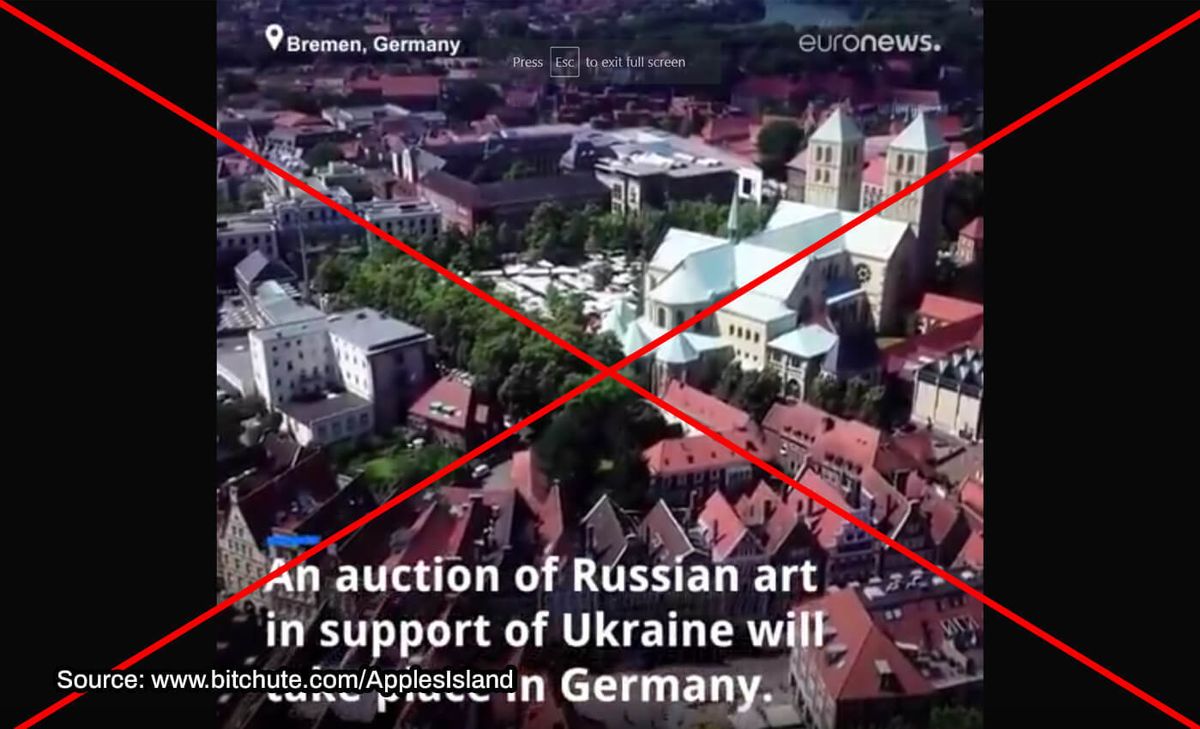A German auction house has had to issue a public statement following the circulation of a fake video online that suggested it was planning to raise money for the war in Ukraine via a sale of Russian art to be destroyed.
The video, which is gaining attention across social media, claims that the Bremen-based auction house Bolland & Marotz asked collectors to donate works of art by Russian artists to be destroyed. The auction house published a statement on its website assuring that the video was a hoax: “An auction described in the video will not take place. [The auction house] firmly distances itself from this video and is outraged that our name is being misused for it," it said in a statement.
The post appeared as a report by Euronews; the news outlet has also published an articleconfirming that the 67-second video is fake. One version is reported to have been watched more than 530,000 times. It has now been removed from all known platforms.
“The video is disgusting, and we do not understand how someone could even imagine such an auction and furthermore—why did this someone choose us? It feels like a nightmare,” says Christina Schulze, a director at Bolland & Marotz. She adds that the debacle is having a "huge impact on our reputation".
This latest incident exemplifies the charged status of Russian culture amid ongoing sanctions from the West. “The visibility of Russian culture on the world stage in the current climate has created a platform for people to voice their opposition and anger at the invasion of the Ukraine by calls to cancel performances, or to reject or ban Russian artists and musicians,” says Jo Vickery, founder of the eponymous advisory service, which specialises in art from Russia and the former Soviet Union. “There needs to be more distinction made between the regime and the people. Many of Russia’s greatest contemporary artists have left the country in difficult circumstances and need our support.”


